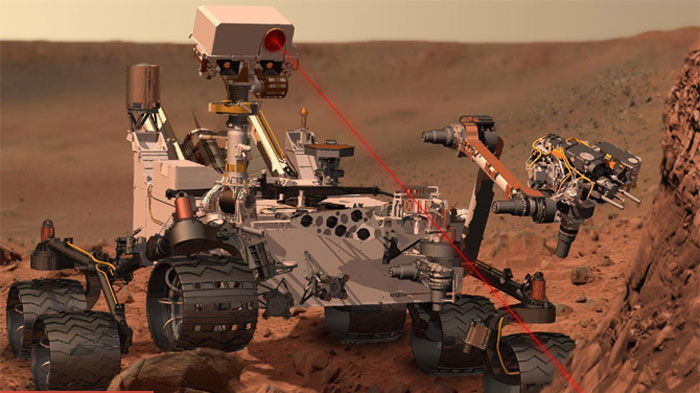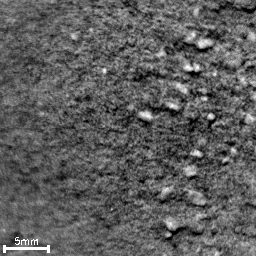.

Mars rover Curiosity was sent to dominate the Red Planet, using its high-resolution cameras, sensors, drill and laser to hunt down any hint of habitability in the Martian rock and regolith. And in a new animation released by NASA today (June 17), we can see that Curiosity’s campaign of Mars domination is in full swing.

Shown here is a sequence of 16 images, over a period of 20 minutes, snapped by Curiosity’s mast-mounted ChemCam instrument when working in the “Yellowknife Bay” area of Gale Crater on sol 271 (May 11, 2013) of the mission. The small hole, measuring less than 4 millimeters wide, was formed by 100 laser blasts from 2.75 meters (9 feet) away. The rock’s surface is slightly sloping, causing the dust created by the excavation to slump into the newly-lased hole.
The ChemCam laser is used by Curiosity to remotely probe the chemical composition of rock and dust. The powerful instrument, which delivers over a million watts of power in short laser bursts of five one-billionths of a second, vaporizes the rock, creating a plasma. The small hole is generated by the shock wave blasting through the rapidly expanding ionized gas. The gas is then analyzed by the ChemCam’s sensitive optics to decipher what chemicals the material is composed of.
This process provides scientists at mission control in NASA’s Jet Propulsion Laboratory, in Pasadena, Calif., with invaluable information about how the rocky material formed and what the environmental conditions may have been like in Mars’ ancient past.
But above all, we have a nuclear-powered robot shooting laser holes into rocks on an alien world. How awesome is that!
Image credits: NASA/JPL-Caltech
5923 Views
